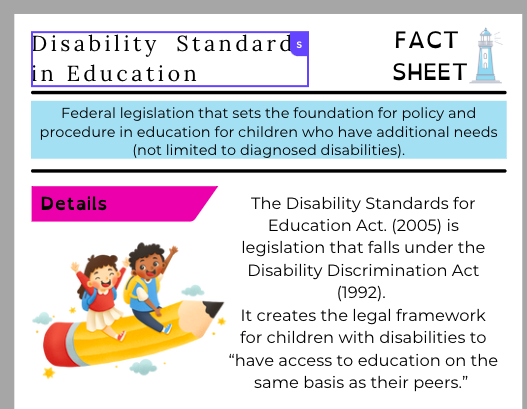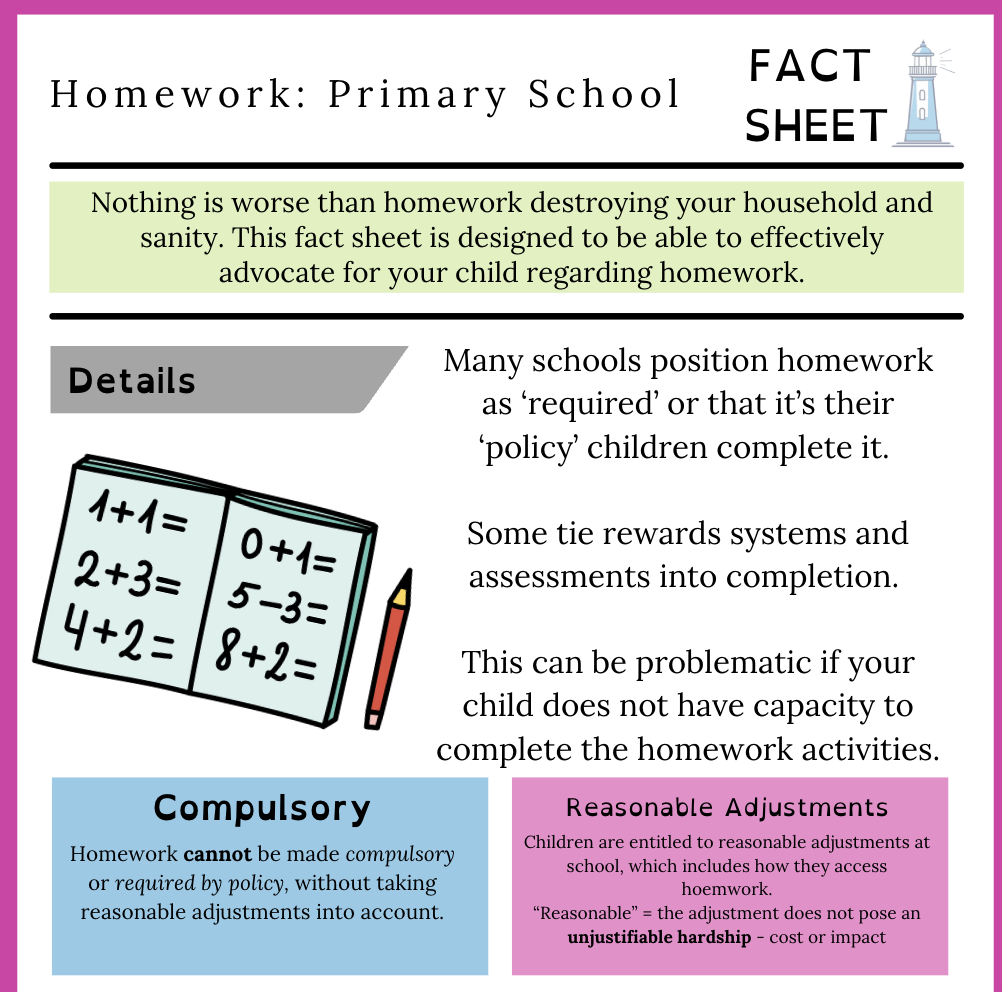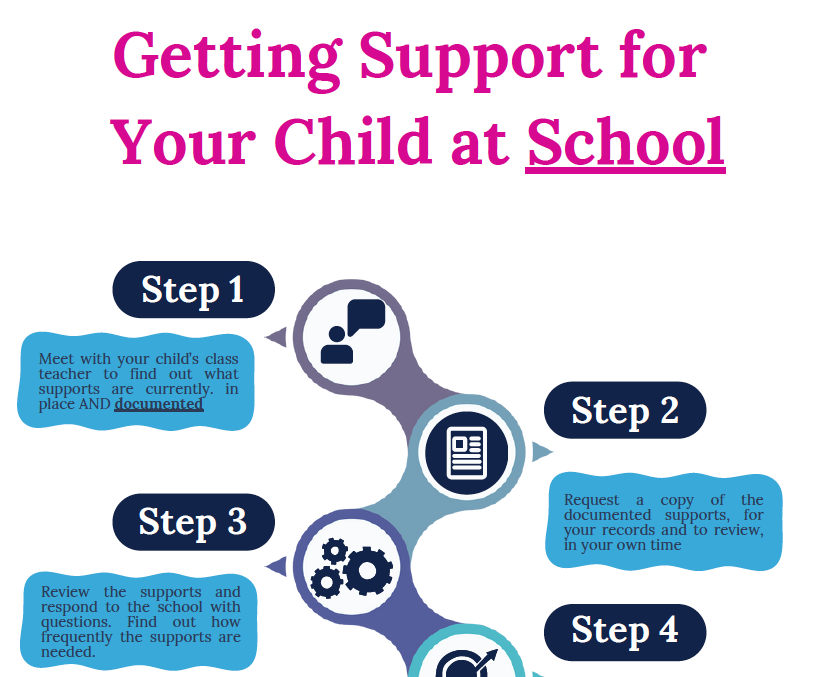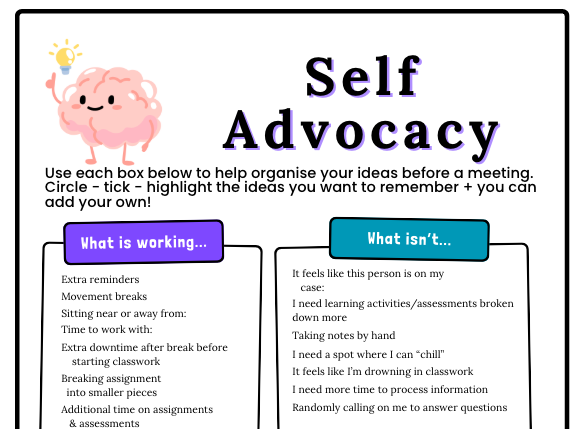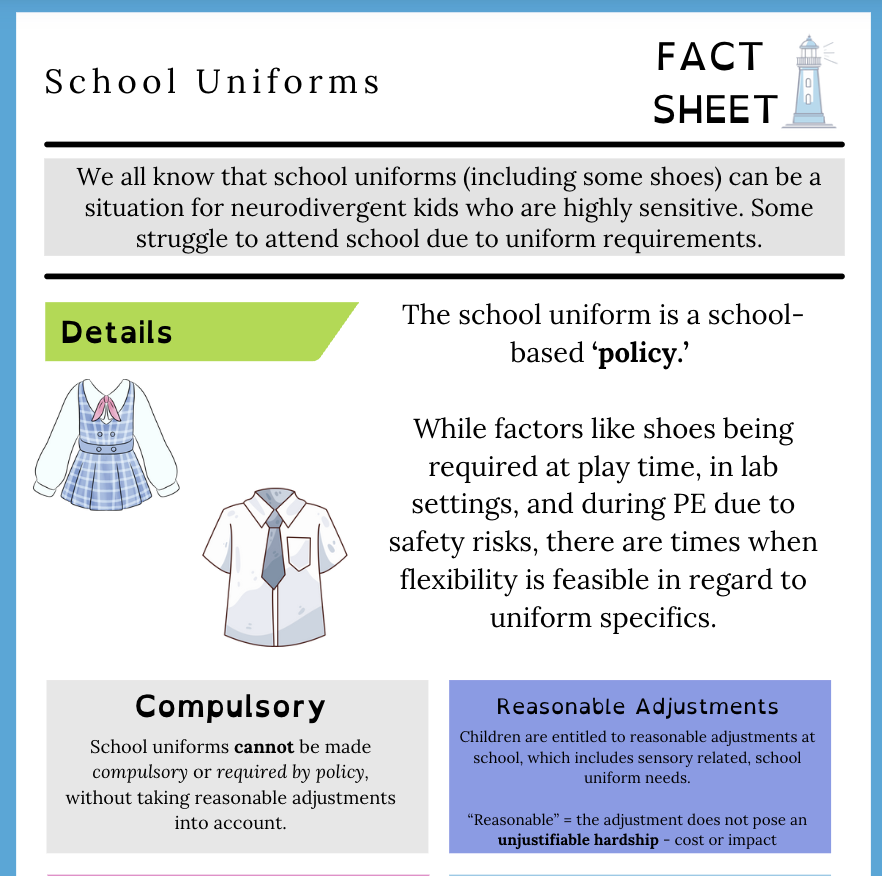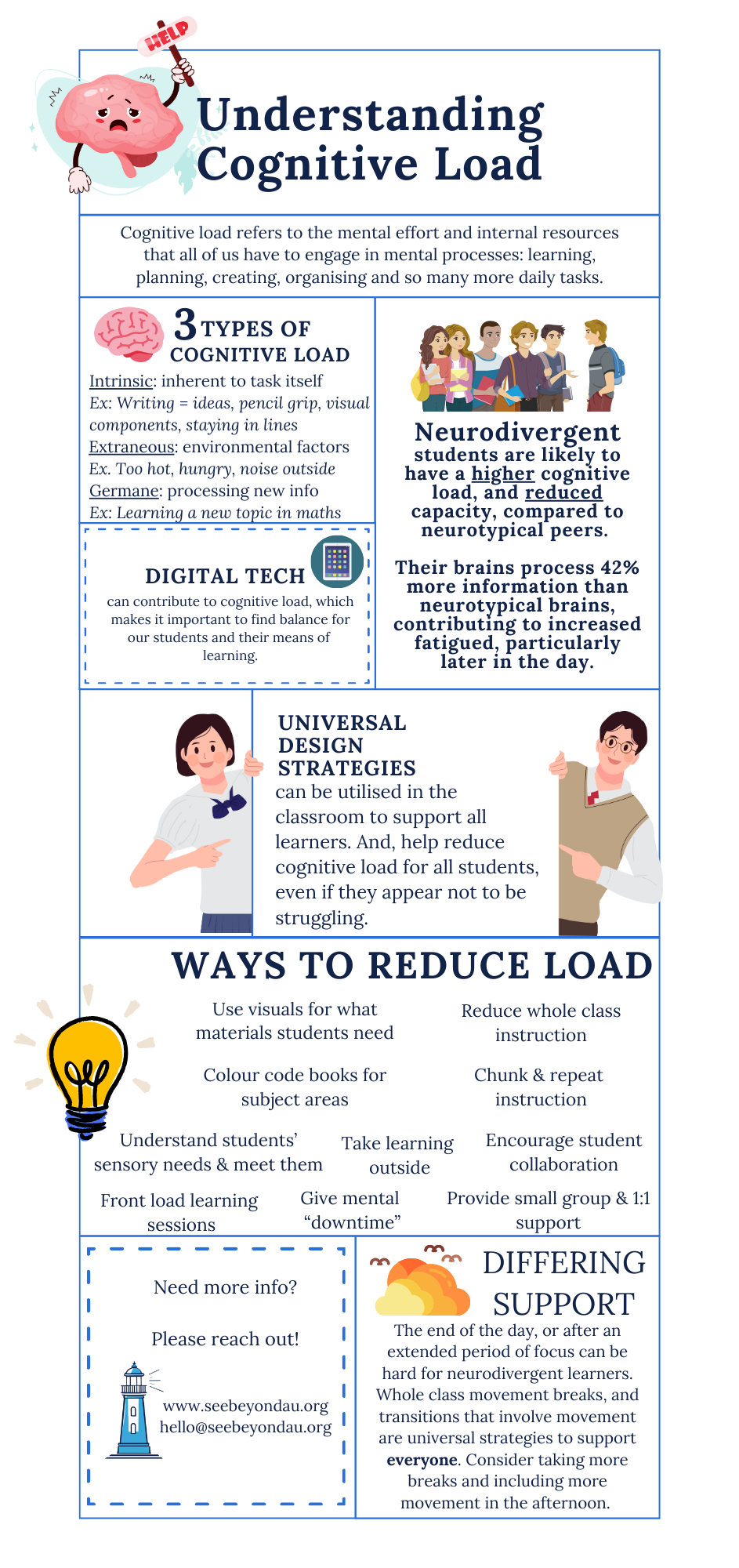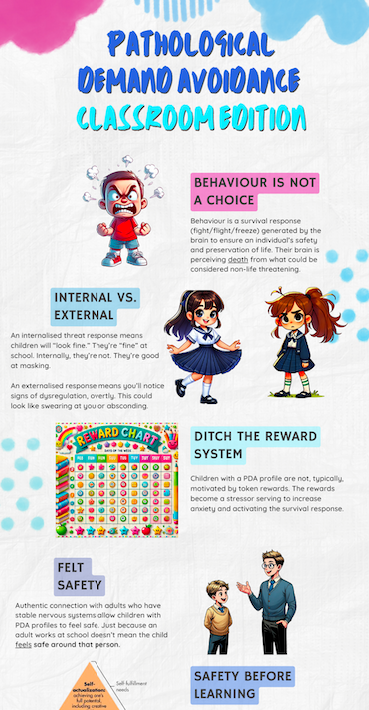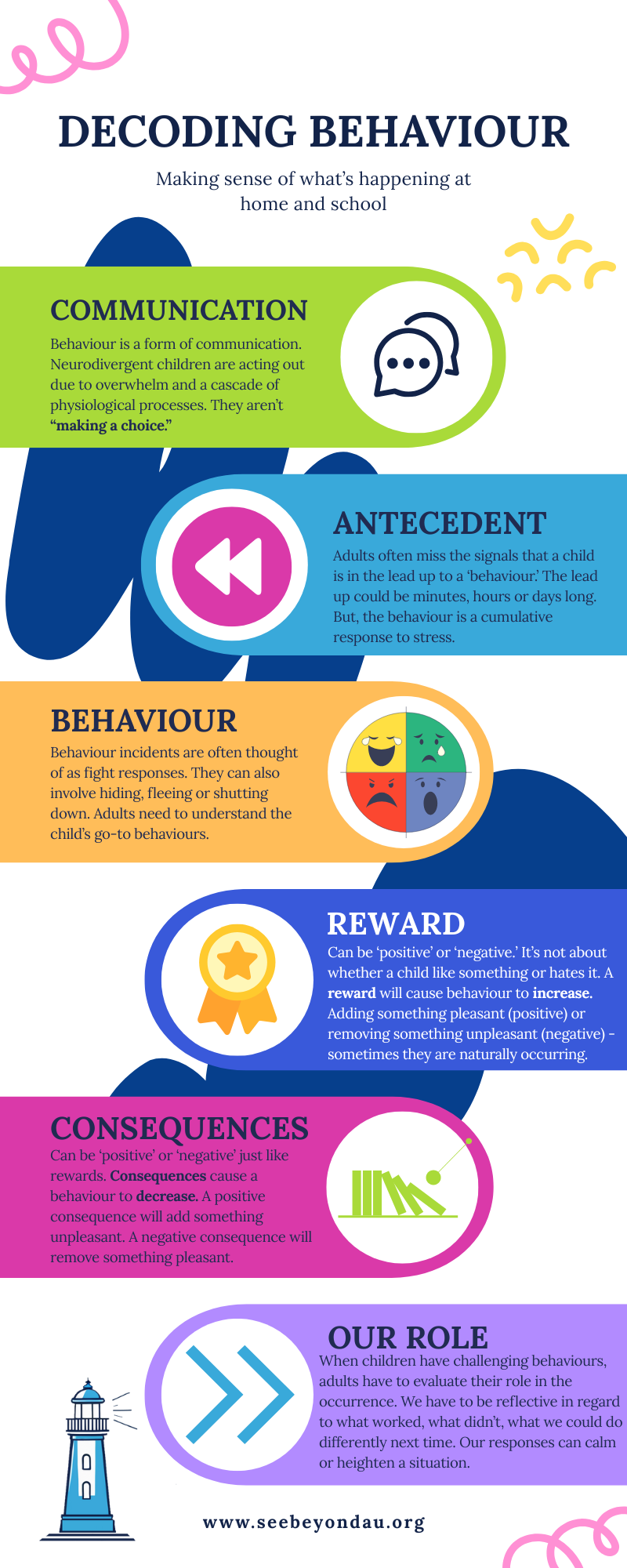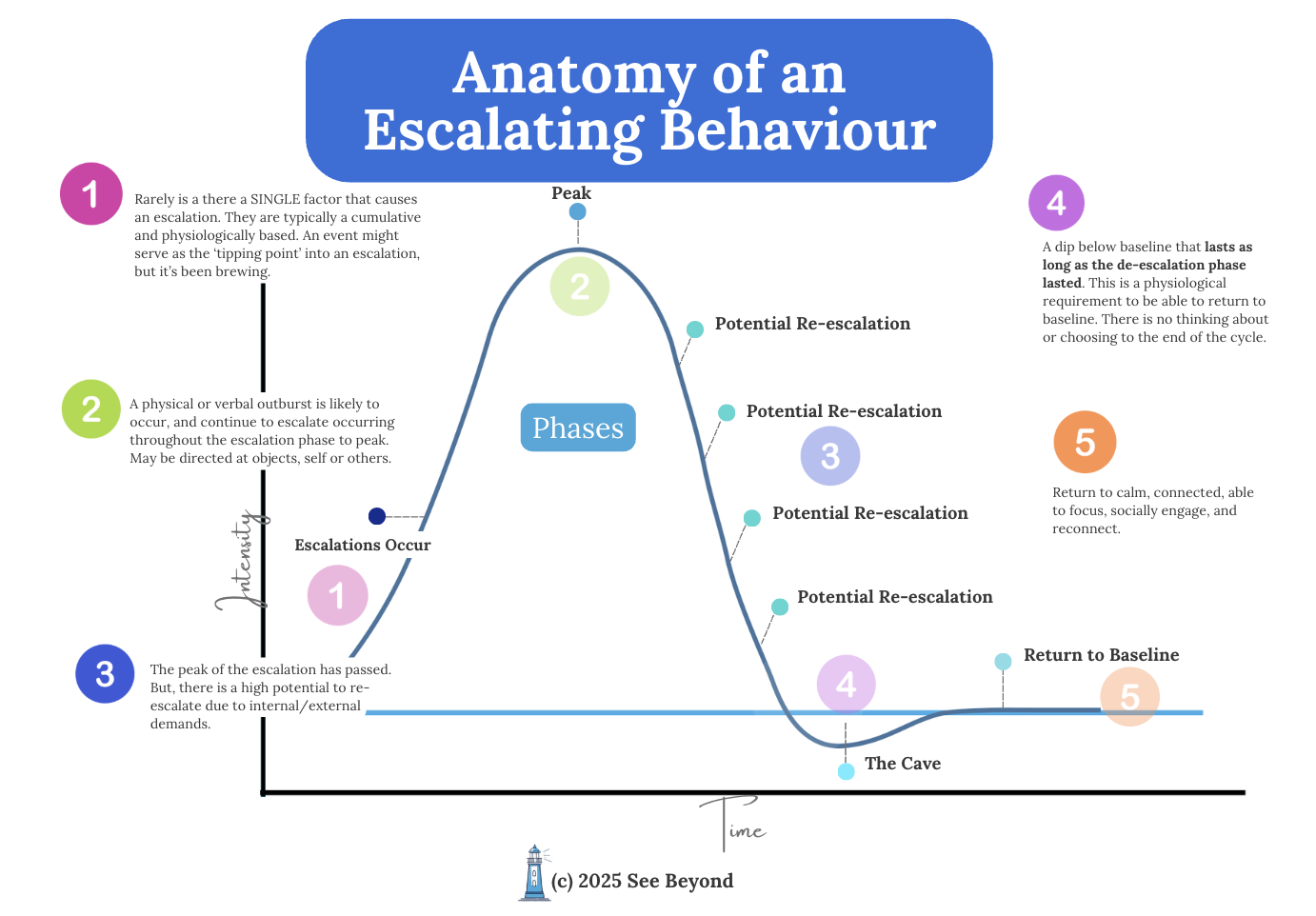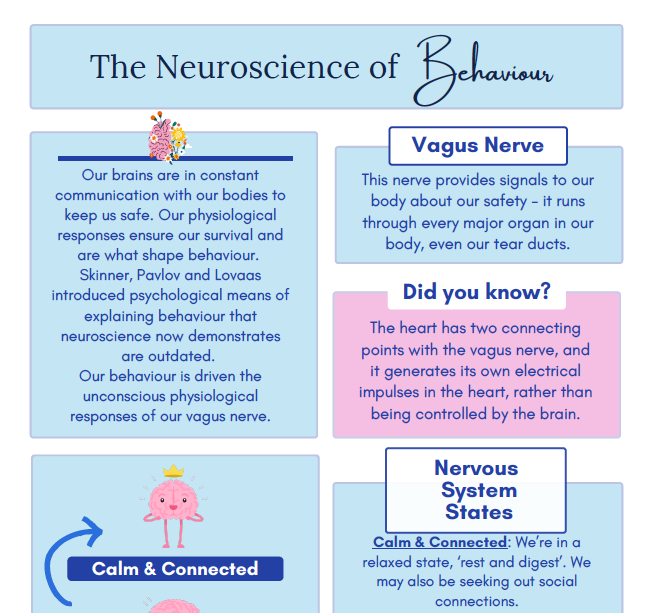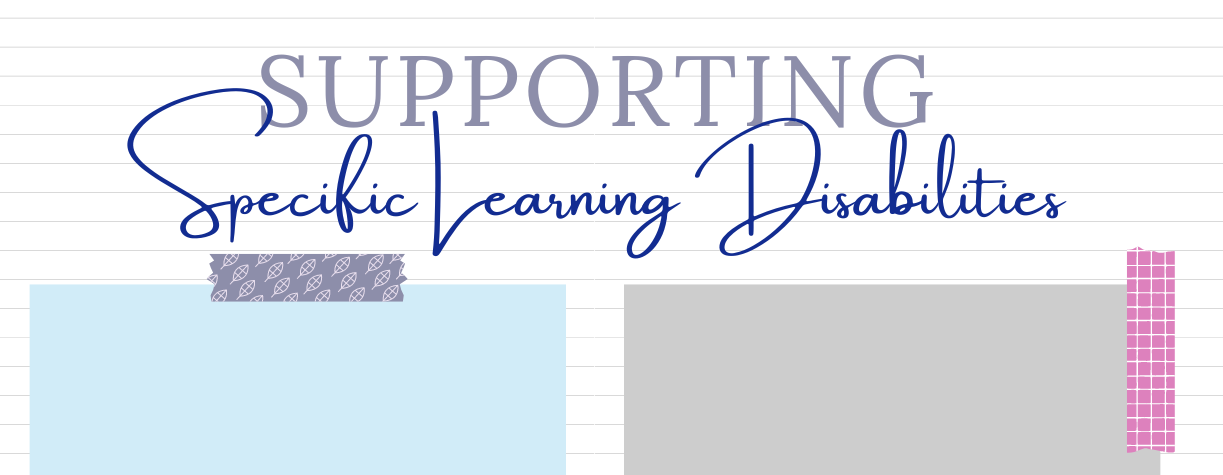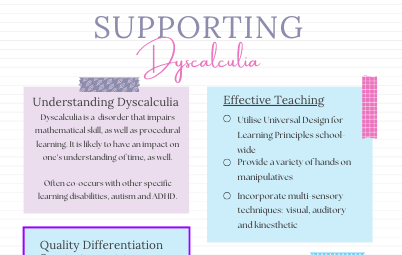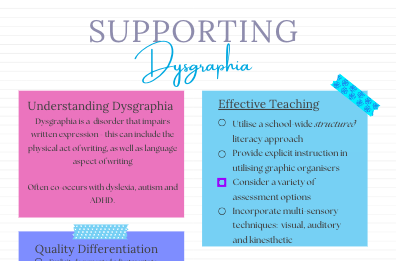Resources for School Supports & Advocacy
Welcome to the resource hub. Below you’ll find free guides, infographics, videos, and tools designed to help parents and teachers understand disability legislation, reasonable adjustments, school supports, and inclusive strategies.
Fact Sheets & Helpful Documents
Free Videos (via Rumble)
Free Infographics
If you like outside the box tools & supports, I've collated a list of what has worked for our family.
This is a two page PDF with links to products, services, online resources and practitioners (local to Brisbane).
For Purchase
Behaviour
When children “lose control” or melt down, it can feel sudden — but escalation usually follows a predictable pattern. This guide helps parents and educators understand the stages of escalation, recognise early warning signs, and respond in ways that reduce conflict instead of adding fuel to the fire.
Is your child facing repeated suspensions at school, and you’re not sure what to do next? This practical guide is designed to help parents understand their child’s rights, the school’s obligations, and the steps you can take to advocate for fair, reasonable adjustments.
Challenging behaviour isn’t just about choices — it’s often about the brain and nervous system. This free guide introduces the neuroscience behind behaviour, helping parents and teachers understand what drives emotional outbursts, shutdowns, and dysregulation. With this knowledge, you can respond in ways that are supportive rather than punitive.
Specific Learning Disabilities
This resource bundle brings together practical guides on dyslexia, dysgraphia, dyscalculia, and dyspraxia — three common specific learning disabilities that can impact a child’s confidence and success at school. Designed for both parents and teachers, these guides provide clear, neuro-affirming strategies to support children at home and in the classroom.
Free guide to supporting students with dyslexia. Learn practical strategies, classroom adjustments, and tools to build literacy and confidence.
Dyscalculia is a specific learning disability that affects a child’s ability to understand numbers and maths concepts. This free guide offers practical strategies and adjustments to support children with dyscalculia in the classroom, helping reduce frustration and build confidence with numeracy.
Dyspraxia (also known as Developmental Coordination Disorder) can affect a child’s movement, planning, and daily learning. This free guide offers practical strategies to support children with dyspraxia at home and in school, helping them build confidence and independence.
To Share with Teachers
Starting a new school year — or working with a new teacher — can feel daunting when your child is neurodivergent. This free resource provides a ready-to-use letter template that helps parents introduce their child, share important strengths and needs, and set the foundation for collaboration with teachers.
Children with a Pathological Demand Avoidance (PDA) profile often need teachers who understand their unique ways of coping with stress and demands. This free resource provides a customisable letter template parents can use to introduce their child, explain PDA in clear terms, and outline strategies that support inclusion and reduce conflict.


